Living Cosmology: Books
Further resources, if available, can be found in our full bibliography.
Featured Resources
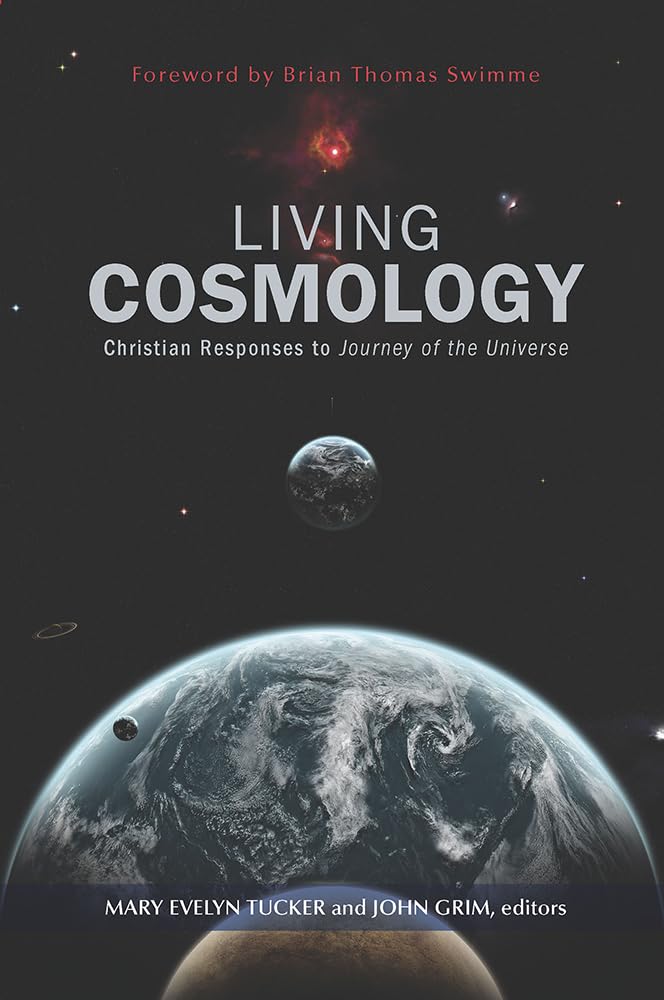
Living Cosmology: Christian Responses to Journey of the Universe
Mary Evelyn Tucker, John Grim
Orbis Books
2016
Journey of the Universe is both a book, a film, and a conversation series by Mary Evelyn Tucker and Brian Swimme that offers a rich unfolding of “the universe story”―a moving narrative of cosmic evolution from the origins of the cosmos to the present. This volume explores the Christian responses to the Universe Story and its implications for the contemporary environmental crisis. Beginning with excerpts from recent statements by Pope Francis and the Ecumenical Patriarch Bartholomew, the book draws on the contributions of leading theologians, ethicists, scientists, and activists, including John Haught, Ilia Delio, Catherine Keller, Larry Rasmussen, and more than twenty-five others.
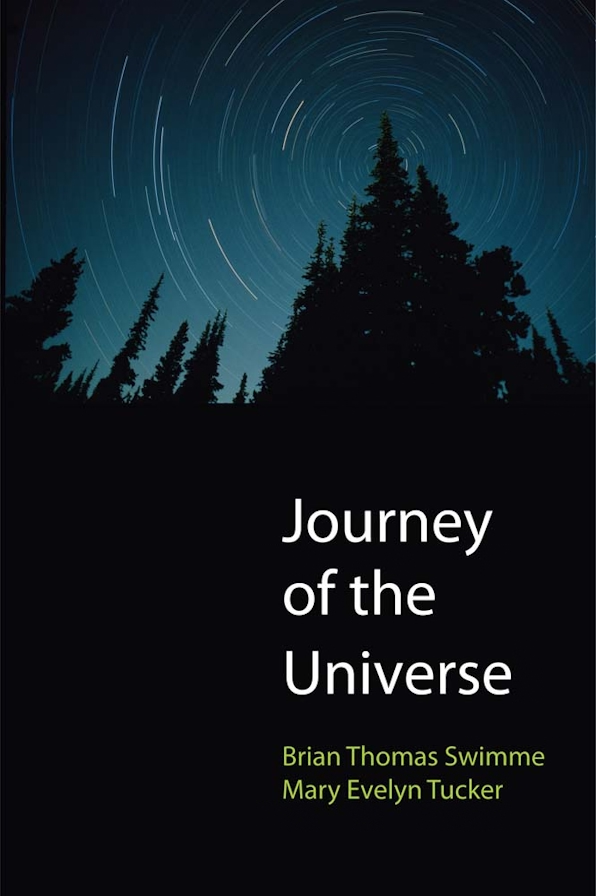
In Journey of the Universe, Brian Thomas Swimme and Mary Evelyn Tucker tell the epic story of the universe from an inspired new perspective, weaving the findings of modern science together with enduring wisdom found in the humanistic traditions of the West, China, India, and Indigenous peoples. The authors explore cosmic evolution as a profoundly wondrous process based on creativity, connection, and interdependence, and they envision an unprecedented opportunity for the world’s people to address the daunting ecological and social challenges of the present era.
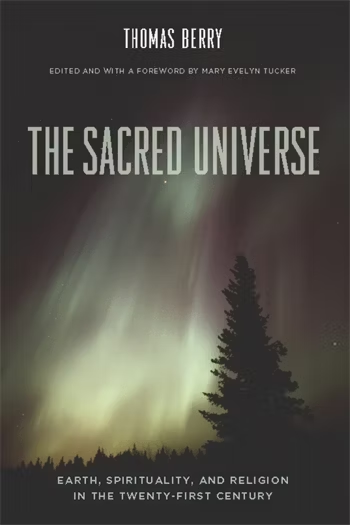
The Sacred Universe: Earth, Spirituality, and Religion in the Twenty-First Century
Thomas Berry
Mary Evelyn Tucker
Columbia University Press
2009
A leading scholar, cultural historian, and Catholic priest who spent more than fifty years writing about humans engagement with the Earth, Thomas Berry possessed prophetic insight into the rampant destruction of ecosystems and the extinction of species. In this book he makes a persuasive case for an interreligious dialogue that can better confront the environmental problems of the twenty-first century. These erudite and keenly sympathetic essays represent Berry’s best work, covering such issues as human beings’ modern alienation from nature and the possibilities of future, regenerative forms of religious experience. Asking that readers create a new story of the universe and the emergence of the Earth within it, Berry resituates the human spirit within a sacred totality.
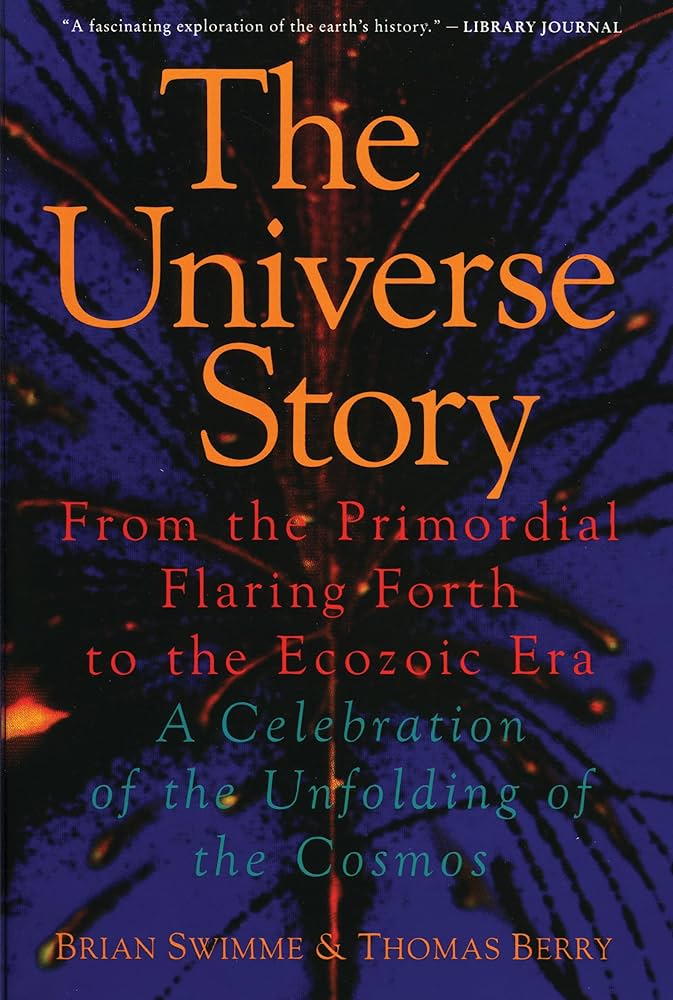
From the Great Flaring Forth to the present and into the next millenium, The Universe Story unites science and the humanities in a dramatic exploration of the unfolding of the universe, humanity’s evolving place in the cosmos, and the boundless possibilities for our future.
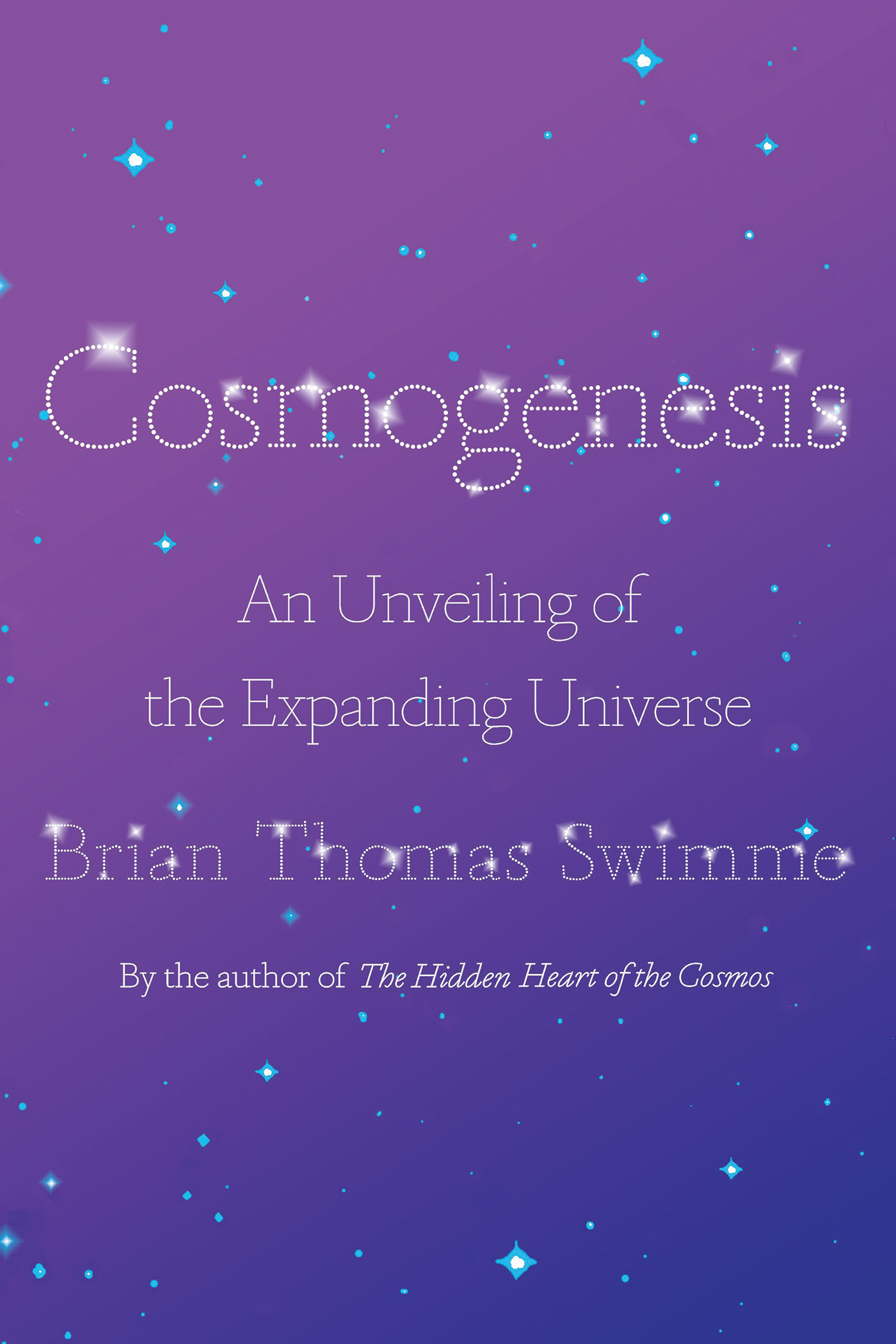
The understanding that the universe has been expanding since its fiery beginning 14 billion years ago and has developed into stars, galaxies, life, and human consciousness is one of the most significant in human history. It is taught throughout the world and has become a common creation story for nearly every culture. In terms of the universe’s development, humans are not only economic, religious, or political beings. At the most fundamental level, they are cosmological beings. Cosmogenesis is one of the greatest discoveries in human history, and it continues to have a profound impact on humanity. And yet most science books do not explore the effects it has had on human individual minds. In Cosmogenesis, Brian Thomas Swimme tells the story of the universe while simultaneously telling the story of the storyteller. Swimme describes how the impact of this new story deconstructed his mind then reassembled it, offering readers a glimpse into how cosmogenesis can transform one’s understanding of both the universe and the evolution of human consciousness itself.
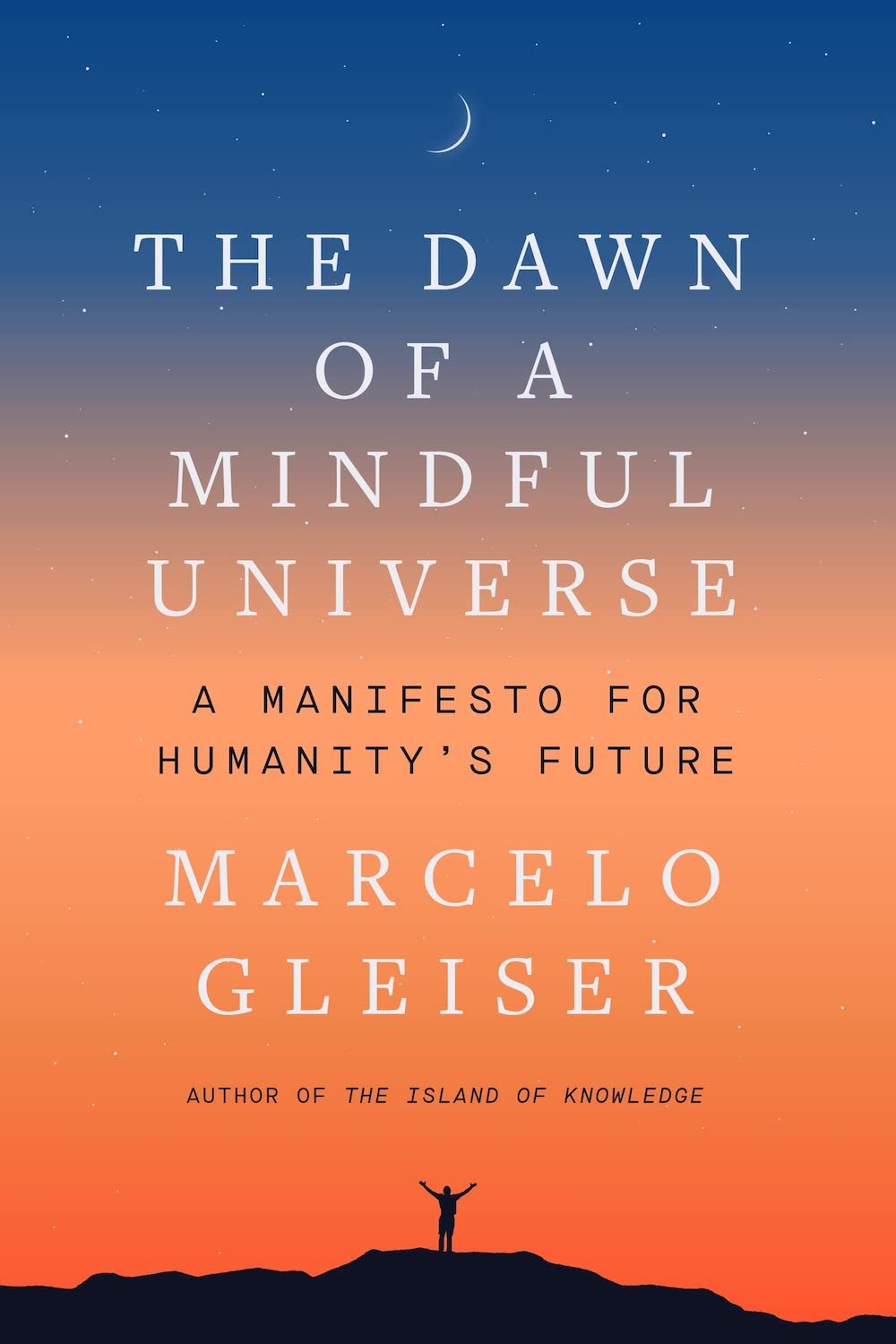
The Dawn of a Mindful Universe is an urgent call for a new Enlightenment and the recognition of the preciousness of life using reason and curiosity–the foundations of science—to study, nurture, and ultimately preserve humanity as it faces the existential crisis of climate change. An astronomer and physicist, Gleiser argues that humans are using the wrong paradigm to relate to the universe and their position in it. In this deeply researched and beautifully rendered book, he calls for humans to embrace a new life-centric perspective, one which recognizes just how rare and precious life is and why it should be their mission to preserve and nurture it. The Dawn of a Mindful Universe addresses the current environmental and scientific impasses and how the scientific community can find solutions to them.
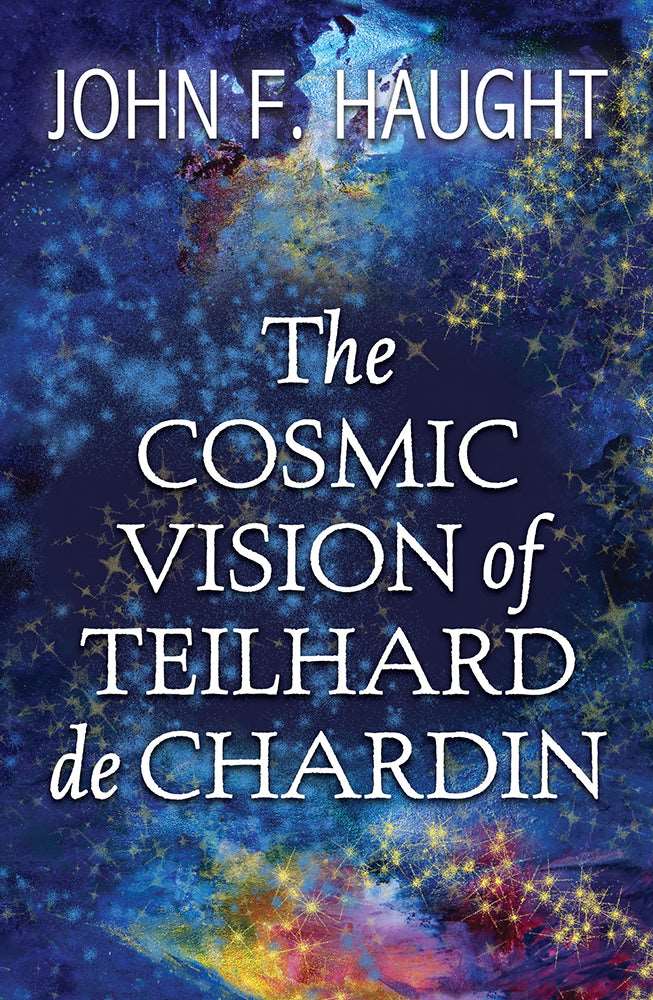
An expert in Teilhardian thought brings together for the first time Teilhard in conversation with other significant religious thinkers, philosophers, and scientists, including Kant, Whitehead, Barbour, Moltmann and Tillich, on topics ranging from the problem of suffering to astrobiology. The Jesuit paleontologist and theologian, Teilhard de Chardin, has been much admired as well as much misunderstood. In this unique treatment, John F. Haught clarifies Teilhard’s thought, while not shying away from the controversies and criticisms. Each chapter explores a different topic—including the cosmos, spirituality, suffering, thought, God, and life—and how each topic has developed the author’s own theology. In particular, Haught focuses on the cosmic future and the implications of Teilhard’s thought for this century and beyond.
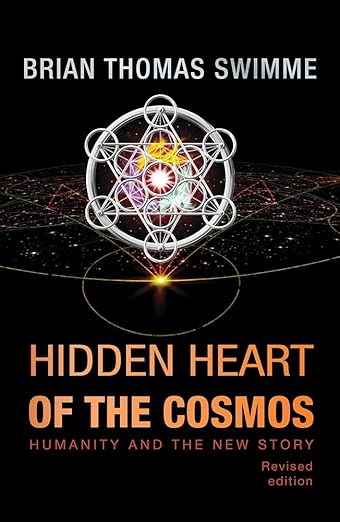
First published in 1996, Hidden Heart of the Cosmos sought to answer the question: What does it mean to be human, to live on planet Earth, in the universe as it is now understood? In this new and updated edition, bestselling author and evolutionary cosmologist Brian Thomas Swimme takes us on a journey through the cosmos in search of the “new story” that is developing in response to this age-old question.

Living Cosmology: Christian Responses to Journey of the Universe
Mary Evelyn Tucker, John Grim
Orbis Books
2016
Journey of the Universe is both a book, a film, and a conversation series by Mary Evelyn Tucker and Brian Swimme that offers a rich unfolding of “the universe story”―a moving narrative of cosmic evolution from the origins of the cosmos to the present. This volume explores the Christian responses to the Universe Story and its implications for the contemporary environmental crisis. Beginning with excerpts from recent statements by Pope Francis and the Ecumenical Patriarch Bartholomew, the book draws on the contributions of leading theologians, ethicists, scientists, and activists, including John Haught, Ilia Delio, Catherine Keller, Larry Rasmussen, and more than twenty-five others.
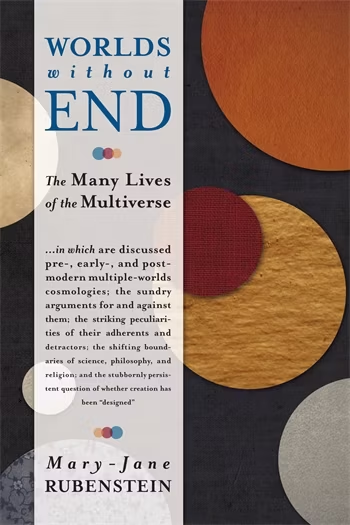
Worlds Without End: The Many Lives of the Multiverse
Mary-Jane Rubenstein
Columbia University Press
2014
“Multiverse” cosmologies imagine the universe as just one among a vast number of others. While this idea has captivated philosophy, religion, and literature for millennia, it is now being considered as a scientific hypothesis–with different models emerging from cosmology, quantum mechanics, and string theory. Beginning with ancient Atomist and Stoic philosophies, Mary-Jane Rubenstein links contemporary models of the multiverse to their forerunners and explores the reasons for their recent appearance. One model concerns the so-called fine-tuning of the universe, in which Nature’s constants are so delicately calibrated that it seems they have been set just right to allow life to emerge. For some thinkers, these “fine-tunings” are evidence of the existence of God. For others, however, “God” is an insufficient scientific explanation.

In Journey of the Universe, Brian Thomas Swimme and Mary Evelyn Tucker tell the epic story of the universe from an inspired new perspective, weaving the findings of modern science together with enduring wisdom found in the humanistic traditions of the West, China, India, and Indigenous peoples. The authors explore cosmic evolution as a profoundly wondrous process based on creativity, connection, and interdependence, and they envision an unprecedented opportunity for the world’s people to address the daunting ecological and social challenges of the present era.
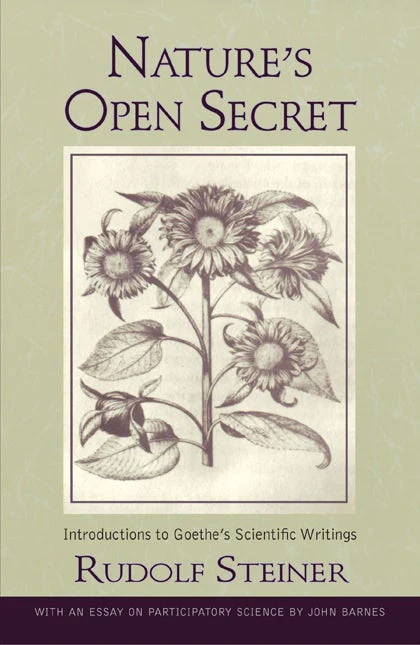
The holistic paradigm, Gaia, deep ecology, and new alchemy all have a hidden ancestor: Johann Wolfgang von Goethe (1749–1832). At the youthful age of twenty-one, Rudolf Steiner was chosen to edit Goethe’s scientific writings for the principle Goethe edition of his time. He recognized the significance of Goethe’s work with nature and his epistemology, thus beginning Steiner’s own training in epistemology and spiritual science. This collection of Steiner’s introductions to Goethe’s works re-visions the meaning of knowledge and how to attain it. Goethe had discovered how thinking could be applied to organic nature and that this experience requires not just rational concepts but a whole new way of perceiving. With a fundamental declaration of the interpenetration of human consciousness and the world around them, Steiner shows how Goethe’s approach points the way to a more compassionate and intimate involvement with nature. Nature’s Open Secret is a translation of Goethe’s Naturwissenschaftliche Schriften, Einleitungen (1884–1897). Previous translations were titled Goethe the Scientist and Goethean Science.

The Sacred Universe: Earth, Spirituality, and Religion in the Twenty-First Century
Thomas Berry
Mary Evelyn Tucker
Columbia University Press
2009
A leading scholar, cultural historian, and Catholic priest who spent more than fifty years writing about humans engagement with the Earth, Thomas Berry possessed prophetic insight into the rampant destruction of ecosystems and the extinction of species. In this book he makes a persuasive case for an interreligious dialogue that can better confront the environmental problems of the twenty-first century. These erudite and keenly sympathetic essays represent Berry’s best work, covering such issues as human beings’ modern alienation from nature and the possibilities of future, regenerative forms of religious experience. Asking that readers create a new story of the universe and the emergence of the Earth within it, Berry resituates the human spirit within a sacred totality.
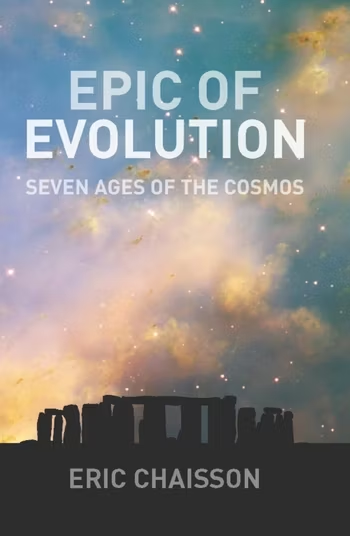
How did everything–the air, the land, the sea, and the stars–originate? What is the source of order, form, and structure characterizing all material things? These are just some of the grand scientific questions Eric J. Chaisson, author of the classic work Cosmic Dawn, explores in his illuminating history of the universe. Explaining new discoveries and a range of cutting-edge ideas and theories, Chaisson provides a creative and coherent synthesis of current scientific thinking on the universe’s beginnings. He takes readers on a tour of the seven ages of the cosmos, from the formless era of radiation through the origins of human culture. Along the way he examines the development of the most microscopic and the most immense aspects of the universe and the complex ways in which they interact.
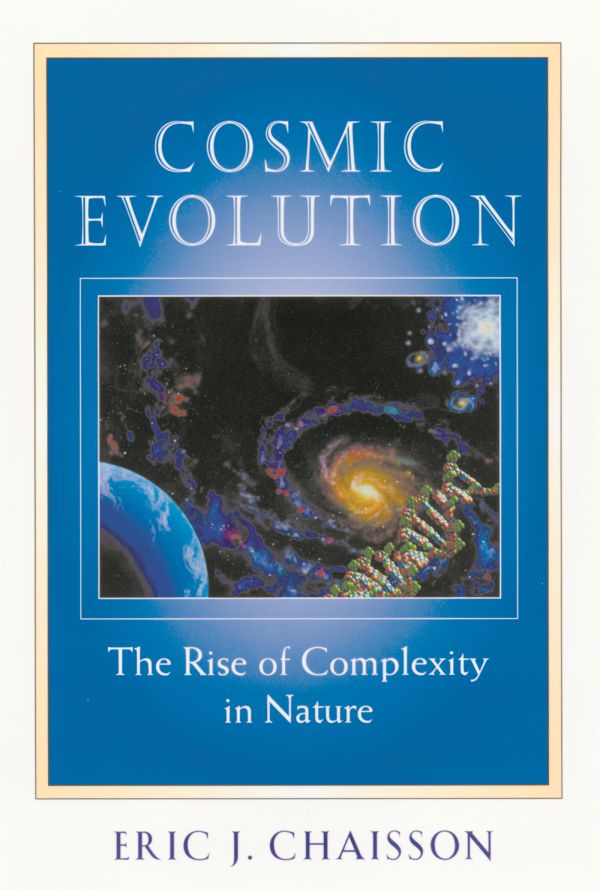
Humans are connected to distant space and time not only by their imaginations but also through a common cosmic heritage. Emerging now from modern science is a unified scenario of the cosmos, including humans as sentient beings, based on the time-honored concept of change. From galaxies to snowflakes, from stars and planets to life itself, people are beginning to identify an underlying ubiquitous pattern penetrating the fabric of all the natural sciences–a sweepingly encompassing view of the order and structure of every known class of object in their richly endowed universe. In Cosmic Evolution Chaisson addresses some of the most basic issues readers can contemplate: the origin of matter and the origin of life, and the ways matter, life, and radiation interact and change with time. Guided by notions of beauty and symmetry, by the search for simplicity and elegance, by the ambition to explain the widest range of phenomena with the fewest possible principles, Chaisson designs an expansive yet intricate model depicting the origin and evolution of all material structures. He shows that neither new science nor appeals to nonscience are needed to understand the impressive hierarchy of the cosmic evolutionary story, from quark to quasar, from microbe to mind.
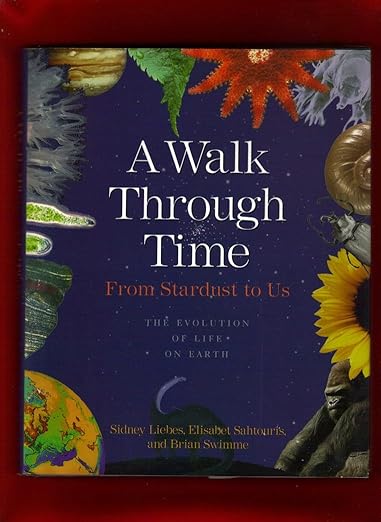
A Walk Through Time: From Stardust to Us--The Evolution of Life on Earth
Sidney Liebes, Elisabet Sahtouris, Brian Swimme
John Wiley & Sons
1998
A Walk Through Time is a landmark book, gorgeously illustrating the remarkable drama of the history of the universe, from the furious blast of the Big Bang to the first pulse of life on Earth, and on through the rich pageant of life’s evolution from primordial microbes to the rise of Homo sapiens. Spanning 15 billion years, the story of life’s greatest mysteries emerges here through 130 beautiful four-color illustrations and an absorbing narrative. Combining the knowledge of three expert authors, the text covers the most up-to-date findings, including new understandings about how the universe coalesced into galaxies and planets; how microscopic animals can survive in such superheated environments as deep-sea vents and inside the Earth’s core, and the possibility that water came to our planet from space in the form of millions of tiny comets. A Walk Through Time gives readers a new perspective on awe-inspiring processes that produced us and our place in the universe. The companion to a traveling exhibition developed by Hewlett Packard and the Foundation for Global Community.

From the Great Flaring Forth to the present and into the next millenium, The Universe Story unites science and the humanities in a dramatic exploration of the unfolding of the universe, humanity’s evolving place in the cosmos, and the boundless possibilities for our future.
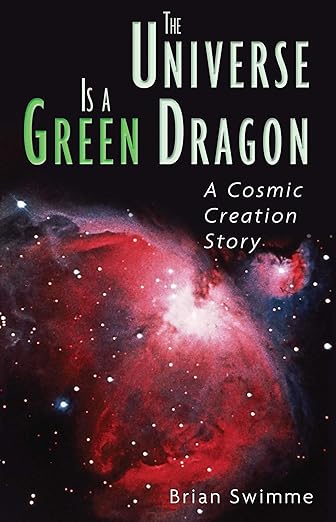
Communicating his ideas in the form of a classical dialogue between a youth and a wise elder, cosmologist Brian Swimme crafts a fascinating exploration into the creativity suffusing the universe. His explication of the fundamental powers of the cosmos is mystical and ecstatic and points directly to the need to activate one’s own creative powers.
Photo Credit: Night descends on Cima d’Asta, Scurelle, Italy; Vincentiu Solomon/Unsplash